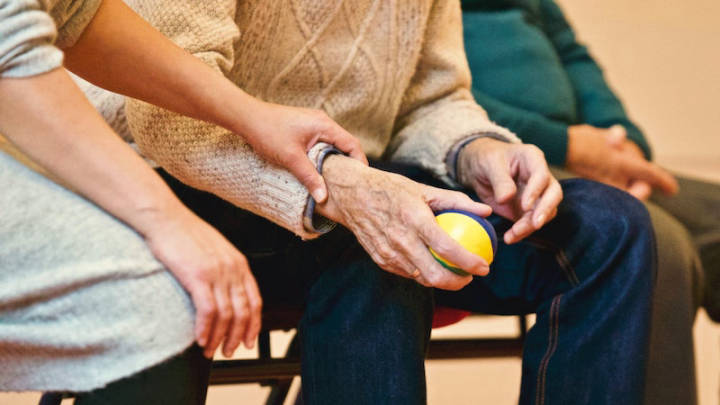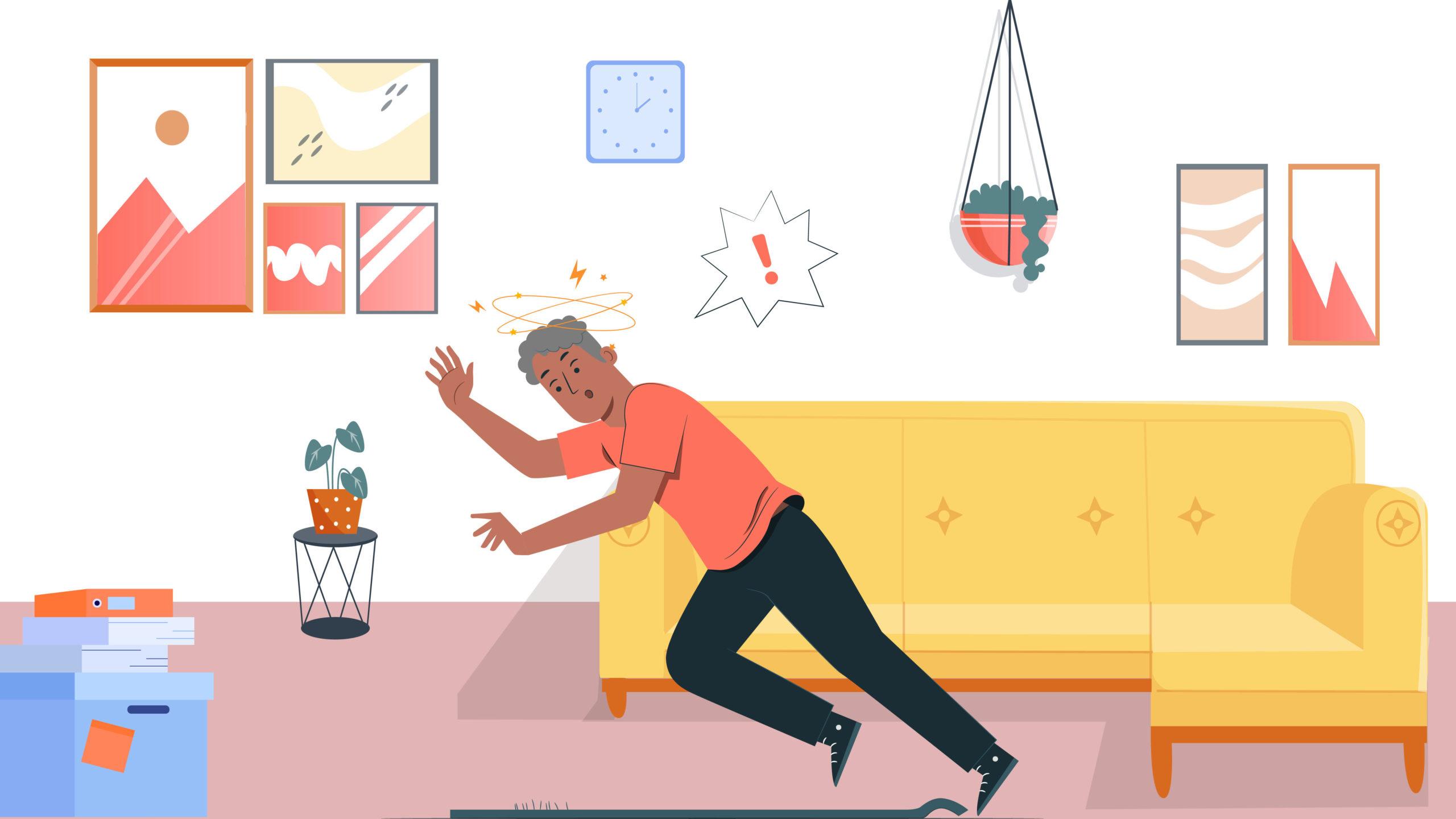Article Contents
Introduction
The bad news for older adults is that falls are the leading cause of death and disability in the United States. The NCOA (National Council on Aging) reports that an older person is treated in the emergency room for a fall every 11 seconds. Thus, it is really important to prevent falls for older adults.
Now the good news. With a thorough understanding of what causes falls, you can prevent yourself and your loved
ones from a fall. Nothing is 100% preventable but reducing the risk is the first place to start.
Why Do Older Adults Fall?
There are many reasons older adults fall and most of them are preventable. Let’s take a look at the reasons older adults, in particular, are more prone to falling.
- Poor eyesight: Older people often have vision problems including muscular degeneration, glaucoma, or other less serious problems that still affect someone’s ability to see safely.
- Medication problems: Medications that are intended to treat medical conditions can also cause dizziness and or lightheartedness. Mixing certain medications can cause serious side effects that can affect balance.
- Foot issues: Neuropathy is a condition that can be caused by several medical problems, but diabetes is the most common. People with neuropathy report tingling or shooting nerve pain in their feet and legs. Others say that they have numbness in their feet which makes it difficult to walk on uneven surfaces.
- General weakness and loss of function: Over time, many older adults become weaker. They lose muscle mass, flexibility, strength, and endurance. Balance deteriorates as a result of inactivity.
- Poor hearing: At first glance, this may not seem like a risk for falling, but even mild hearing loss can increase the risk of falling. According to the American Speech Hearing and Language Association, the risk of a fall increases by 140 percent for every 10 decibels of hearing loss.
- Clutter in the home: Throw rugs, clutter, and electrical cords are safety hazards.

How to Prevent Falls for Older Adults
Falls can’t be stopped completely, but there are preventative measures that can dramatically reduce the risk. Moreover, these tips will contribute to a healthier happier life.
- Make a doctor’s appointment: Ask for an evaluation of current medications. Request an eye and hearing test.
- Exercise: For many older adults, this will be a new concept, but it is never too late to start. Begin by checking with health care providers to make sure there are no precautions. Consider physical therapy as a great way to focus on weakness and especially balance. Here are some tips for improving your health.
- Clear the clutter: Take stock of the home environment and clear out throw rugs, eliminate clutter, and make sure there is adequate lighting throughout the home.
- Grab bars and accessibility additions: Think about installing grab bars in the shower and ask your loved one about the possibility of a shower chair. Install railings inside and out where they are needed.
- Footwear: Pumps and heels may look nice but they are not good for walking! Try and convince your loved one that sneakers are all the rage now for older adults and they have better grip and stability.
Elderly Fall Prevention Checklist
An elderly fall prevention checklist can help you keep track of what you need to do to prevent falls in elderly loved ones. Some items to consider including on your checklist are:
- Ensure the home is free of hazards, including clutter, poor lighting, and slippery surfaces
- Encourage exercise and socialization, as well as adequate hydration
- Ensure that medications are not causing dizziness or confusion, or replace them if necessary
- Provide appropriate assistive devices, such as grab bars in the bathroom and a raised toilet seat
- Monitor for changes in mood or behavior that could indicate a problem
- Check the fit and condition of footwear to ensure it is appropriate for the elderly
- Have a discussion with your doctor about fall risks and prevention strategies
Conclusion
Falls can cause serious injuries, fractures and even death. So, taking precautions is important to reduce the risk of falling. Some of the common causes of falls in seniors include poor eyesight, mobility issues, poor hearing, medication side effects, etc. However, regular exercise, decluttering living space, wearing appropriate footwear, and visiting doctors may reduce the risks.
By following these simple tips, you can help keep yourself safe from falls and enjoy a long and healthy life! For additional resources and information, visit Boomershub.
Frequently Asked Questions
How to prevent elderly from falling out of bed?
There are a few things that can be done to help prevent elderly people from falling out of bed. First, make sure the bed is low to the ground so that it is easier for the person to get in and out of. Second, put a rail on one or both sides of the bed to provide support. Finally, make sure there is plenty of light in the room so that the person can see where they are going.
How to prevent falls in the elderly with dementia?
To prevent falls in the elderly with dementia ensure the following things:
- pathways and hallways are free of clutter and obstacles
- grab bars, visual cues, and railings are installed in key areas where falls are likely
- adequate lighting in all areas of the home
- wearing shoes with rubber soles to help with traction
- regular exercise and socialization are done
- rugs and mats are non-slip
- eating a healthy, balanced diet, and drinking plenty of water
- speak with a doctor about any potential dangers from medication
How to prevent elderly people from falling in the night?
To prevent elderly people from falling in the night:
- Place nightlights in the bedroom and hallways
- Avoid drinking alcohol before bedtime
- Keep pathways and floors clear of clutter
- Place a safety rail on each side of the bed to provide support
- Wear shoes with good traction in case you need to get up in the middle of the night
What impact will fall prevention have in elderly?
Fall prevention is extremely important for elderly individuals as they are more susceptible to falls and injuries. By taking some simple precautions, the risk of falling can be greatly reduced. Fall prevention can help reduce the number of falls and injuries among the elderly, improving their quality of life and extending their life expectancy.

